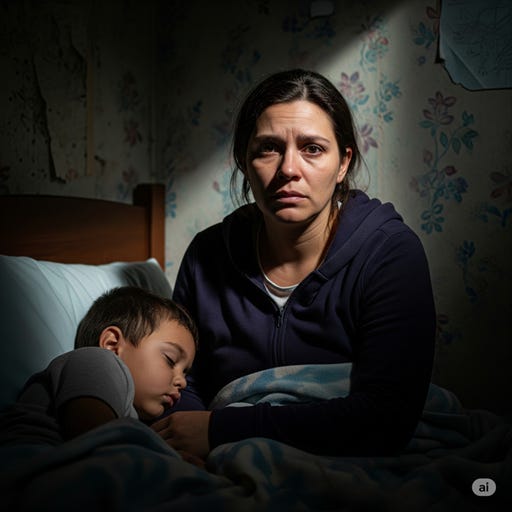The chill of dawn seeped into Clara’s bones, mirroring the icy dread that had become her constant companion. Her son, Leo, coughed softly in his sleep beside her, a thin blanket barely warding off the morning's bite. The news had spread like wildfire through their low-income housing complex: the "One Big, Beautiful Bill" was coming. Not beautiful for them, though. For Clara and millions like her, it was a death knell disguised as economic policy.
She remembered the fleeting relief Medicaid had offered when Leo had that awful fever last winter. The doctor's visit, the antibiotics – they weren't luxuries, they were lifelines. Now, the proposed budget cuts threatened to slash support for the very programs that kept families like hers from succumbing to the abyss. The thought of Leo falling ill again, and her being powerless to help him, twisted her stomach into knots.
Food stamps, or SNAP as they called it now, had been the only reason they ate regularly. She stretched every dollar, making sure Leo had enough, even if it meant she went without. The article had laid it bare: every dollar cut from SNAP ripped $1.50 to $1.80 out of the economy, especially from small towns and local grocery stores. Clara pictured their small neighborhood market, the one where Mrs. Rodriguez always gave Leo an extra piece of fruit. Would it even survive? How many more shelves would be empty, not just of food, but of hope?
The politicians, the article said, were handing out mega tax cuts to the wealthy, believing it would "grow the economy". Clara scoffed, a bitter sound in the quiet room. She knew where her $200 (if she ever had such a sum) would go – to groceries, new shoes for Leo, fixing the leaky faucet. That money, the article explained, went straight into local businesses, creating jobs, keeping the world turning. But the money given to the rich? It would vanish into stocks and rental properties, inflating asset prices, making housing even more unreachable. Her dreams of a slightly better apartment, a place where Leo could have his own small corner, felt like a cruel joke.
She traced the outline of Leo’s small hand. Education, research, the next generation – that's where the investment should be, the article argued. But instead, Pell grants and STEM programs were facing the axe. Leo loved looking at the stars, dreaming of rockets and faraway planets. What future was there for him if the very paths to knowledge were being dismantled? It felt like they were being told, "Sorry, folks, you're on your own".
The dismal future stretched before Clara like an endless, gray road. Less food on the table, sicker children, no chance for them to rise above their circumstances. Main Street, the lifeblood of their community, would become more boarded up, more desolate. The engine of the economy, which relied on people like them buying necessities, was sputtering out. All so quarterly reports could look "fabulous" for someone else.
Clara pulled Leo closer, burying her face in his soft hair. The warmth of his small body was a stark contrast to the cold fear gripping her heart. This wasn't just economics; it was a stripping away of dignity, a crushing of dreams. It was the future of millions of low-income families, and it was heart-wrenching.





putting a human face on this otherwise abstract story